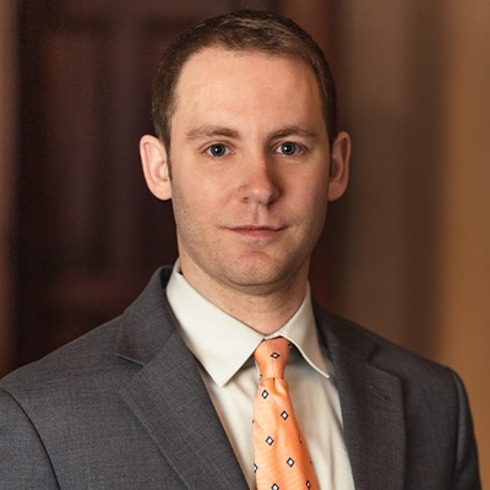Indianapolis Pulmonary Embolism Lawyer
Helping people is our priority



Since 1993

When you have to face a pulmonary embolism (PE) and the condition is caused by someone else’s negligence, you have several legal options for seeking compensation to cover the cost of your injuries and damages. In this situation, the team at Christie Farrell Lee & Bell can help. Since our founding in 1993, our team of lawyers has helped countless victims to get financially restituted after being injured by another’s negligence.
Suffered a Pulmonary Embolism? Our Indianapolis Lawyers Can Help You Find Answers and Compensation
After suffering from a pulmonary embolism due to medical oversight or negligence, the path to compensation requires a knowledgeable ally. Our attorneys can assist by:
- Conducting an in-depth review of your medical records to prove negligence.
- Consulting with medical experts to identify failures in standard care.
- Negotiating with insurance companies to secure a fair settlement.
- Litigating your case in court if necessary to ensure you get financially restituted.
Our dedicated team of personal injury lawyers is committed to guiding you through this difficult time, ensuring you understand your rights and options for seeking compensation.
Our Extensive Experience With Medical Malpractice in Indiana
We’ve successfully navigated these challenges for other clients facing similar circumstances, as shown in our case results. Our team of lawyers has extensive experience in medical malpractice law, backed by a thorough understanding of the legal system and over 40 years of experience in Indiana.
For example, we’ve recently secured a $1,250,000 settlement for a medical malpractice case, and we can also help you find the best possible compensation. To achieve this, we combine a thorough approach to investigating the case and gathering evidence with a fierce representation to negotiate with at-fault parties and fight for your rights.
Speak with a personal injury lawyer today. Call: 317-488-5500
What Are The Most Common Causes Of Pulmonary Embolism and Deep Vein Thrombosis?
According to the American Lung Association, pulmonary embolism affects around 900,000 people in the U.S. every year, with 10-30% of individuals dying within one month of diagnosis. Additionally, the CDC states that one-third (about 33%) of people with deep vein thrombosis (DVT) or pulmonary embolism will have a recurrence within 10 years.
These conditions often stem from negligence, such as failing to recognize risk factors or symptoms promptly. For example, victims often get injured due to surgical errors, misdiagnosis, or medication errors, all of which stem from negligence.
Other common causes include:
- Prolonged immobility (e.g., long flights, bed rest)
- Surgical procedures, particularly involving the hips or legs
- Certain medical conditions and treatments that affect blood clotting (e.g., cancer and its treatments, heart disease)
- Hormone therapy, including the use of birth control pills
- Injuries to the veins
- Genetic conditions that affect blood clotting
- Smoking
- Obesity
Symptoms of pulmonary embolism include shortness of breath, chest pain, and leg pain. If doctors knew you were at risk but failed to diagnose or treat your condition, you have a medical malpractice case and the right to claim fair compensation.
Pulmonary Embolism And Deep Vein Thrombosis Are Not Inevitable And Can Be Treated
According to the CDC, there are effective treatment options for pulmonary embolism and deep vein thrombosis, including anticoagulants, thrombolytics, inferior vena cava filters, and thrombectomy/embolectomy.
However, all of these treatments can be expensive and time-consuming. If the injury resulted from negligence, you’ll benefit from claiming compensation for your medical bills and other damages, ensuring you don’t have to shoulder the costs of someone else’s negligence.
Complete a Free Case Evaluation form now
Claim for the Damages Caused by Pulmonary Embolism in Indianapolis
Under the Indiana Medical Malpractice Act, victims of medical malpractice can seek compensation. To succeed in a medical malpractice case, plaintiffs must prove that the healthcare provider owed them a duty of care, breached that duty by failing to meet the standard of care, and that this breach caused their injuries.
Commonly, you need expert testimony to establish negligence (and that’s why we consult with medical experts to prove liability in these cases).
Additionally, the Indiana Medical Malpractice Act caps the total damages available to a patient at $1.25 million. Physicians are responsible for the first $250,000 in damages, while the state’s Patient’s Compensation Fund (PCF) covers any excess up to $1 million.
Type of Damages You May Be Entitled to Claim
If you have a medical malpractice claim, you can seek compensation for the following damages:
- Medical bills
- Lost wages
- Pain and suffering
- Emotional distress
- Loss of enjoyment of life
- Loss of consortium
Click to contact us today
Steps We Will Take to Determine if You Have a Medical Malpractice Case After a Pulmonary Embolism
At Christie Farrell Lee & Bell, we take a structured approach to building strong cases and pursuing compensation. Our process includes:
- Initial consultation: We start with a detailed discussion about the circumstances leading to the pulmonary embolism to understand the specifics of your situation.
- Medical record review: We then collect and review all relevant medical records from before, during, and after the incident.
- Expert consultation: Next, our team consults with medical experts, who will assess whether the standard of care was met and identify any deviations that could constitute negligence.
- Legal analysis: Based on the information gathered, we conduct a thorough legal analysis, applying relevant laws and precedents to build a strong case for compensation.
- Assessment of damages: We evaluate the full extent of your damages, including medical expenses, lost wages, pain and suffering, and any long-term disability or care needs resulting from the pulmonary embolism.
- Legal strategy: With all the information and expert opinions at hand, we develop a tailored strategy for your case. This may involve negotiations with the responsible parties or preparing for trial if necessary.
FAQs About Pulmonary Embolism Cases in Indianapolis
Can You Misdiagnose Pulmonary Embolism?
Yes, it’s possible to misdiagnose pulmonary embolism, often because its symptoms mimic those of other conditions, such as heart attacks or panic disorders.
What Is the Most Common Complaint in Pulmonary Embolism?
The most common legal complaint in cases involving pulmonary embolism often centers around medical malpractice due to misdiagnosis or delayed diagnosis.
Can You Sue a Hospital for Pulmonary Embolism?
Yes, if a hospital’s failure to follow standard care protocols leads to a pulmonary embolism or exacerbates an existing condition, it may be liable for medical malpractice.
Can You Sue for Blood Clots?
If blood clots form or aren’t treated properly due to medical negligence (such as failure to prescribe anticoagulants when necessary or monitor a patient’s condition adequately), you have grounds to sue.
Why You Need an Indianapolis Pulmonary Embolism Lawyer to Secure Fair Compensation
After a pulmonary embolism caused by negligence, the expertise provided by the lawyers at Christie Farrell Lee & Bell will significantly impact the outcome of your case and maximize your recovery.
Working with us will take you closer to the compensation you deserve to ensure your financial stability and future well-being. Plus, there are no fees unless we win your case.
To start your pursuit of justice with no upfront costs to you, just contact us today to schedule a free consultation. Serious injury isn’t one thing we do – it’s all we do.
Indianapolis Office
951 N Delaware St Indianapolis, IN 46202
Phone: 317-593-9202

Get a FREE Case Review
Schedule Your Free Consultation















